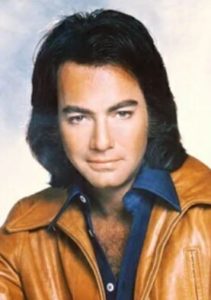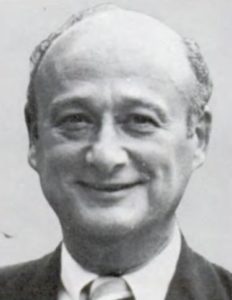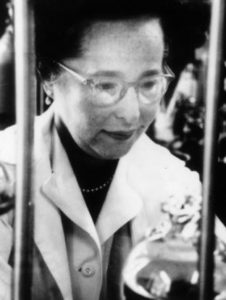“The Jewish Elvis”
 Neil Leslie Diamond (b. 1941) was born in Brooklyn to a Jewish family of Russian and Polish heritage. In high school, he sang in the school choir alongside classmate Barbra Streisand. Diamond was inspired by a Pete Seeger performance at his Jewish summer camp, and as soon as he returned home got a guitar and started writing songs. Meanwhile, he was on his high school fencing team and got a fencing scholarship to attend New York University. (He won an NCAA fencing championship in 1960!) Eventually, Diamond dropped out of his pre-med program and went to work for Sunbeam Music writing songs for $50 a week. He then went off on his own and formed a singing duet with a friend. Finding no success, Diamond decided to go solo and got a recording deal with Columbia in 1962. Unfortunately, despite good reviews his first album was a commercial flop. Diamond was dropped by Columbia and lived in poverty for the next several years of his life, at one point barely surviving on just $3 a day. In 1965, Diamond started writing hit songs for The Monkees, including “I’m a Believer”. Soon, Diamond became a popular songwriter and composed for the likes of Elvis Presley and Deep Purple. He had his own first hit in 1966 with “Solitary Man”, followed by “Sweet Caroline” in 1969 (later selected for historical preservation by the Library of Congress). After that, the hits kept coming and his shows sold out night after night. During one San Francisco show in 1979, Diamond suddenly collapsed on stage and couldn’t get up. It turned out that he had a tumour in his spine, and went through a 12-hour surgery to remove it. His 1980 hit “America” became the most recognizable song in the country, and is sometimes likened to a second national anthem. All in all, Diamond had ten Number 1 singles, and 38 reached the Billboard Top 10. He has sold over 100 million records, making him one of the most successful musicians of all time. Diamond has always been open about his Jewish faith, sang “Kol Nidre” in a famous Yom Kippur scene in the film The Jazz Singer, and has been called “the Jewish Elvis”. He was inducted into the Rock and Roll Hall of Fame, won a Grammy for Lifetime Achievement, and has a star on the Hollywood Walk of Fame. In 2018, Diamond retired after being diagnosed with Parkinson’s disease, though he still spends much of his time writing songs.
Neil Leslie Diamond (b. 1941) was born in Brooklyn to a Jewish family of Russian and Polish heritage. In high school, he sang in the school choir alongside classmate Barbra Streisand. Diamond was inspired by a Pete Seeger performance at his Jewish summer camp, and as soon as he returned home got a guitar and started writing songs. Meanwhile, he was on his high school fencing team and got a fencing scholarship to attend New York University. (He won an NCAA fencing championship in 1960!) Eventually, Diamond dropped out of his pre-med program and went to work for Sunbeam Music writing songs for $50 a week. He then went off on his own and formed a singing duet with a friend. Finding no success, Diamond decided to go solo and got a recording deal with Columbia in 1962. Unfortunately, despite good reviews his first album was a commercial flop. Diamond was dropped by Columbia and lived in poverty for the next several years of his life, at one point barely surviving on just $3 a day. In 1965, Diamond started writing hit songs for The Monkees, including “I’m a Believer”. Soon, Diamond became a popular songwriter and composed for the likes of Elvis Presley and Deep Purple. He had his own first hit in 1966 with “Solitary Man”, followed by “Sweet Caroline” in 1969 (later selected for historical preservation by the Library of Congress). After that, the hits kept coming and his shows sold out night after night. During one San Francisco show in 1979, Diamond suddenly collapsed on stage and couldn’t get up. It turned out that he had a tumour in his spine, and went through a 12-hour surgery to remove it. His 1980 hit “America” became the most recognizable song in the country, and is sometimes likened to a second national anthem. All in all, Diamond had ten Number 1 singles, and 38 reached the Billboard Top 10. He has sold over 100 million records, making him one of the most successful musicians of all time. Diamond has always been open about his Jewish faith, sang “Kol Nidre” in a famous Yom Kippur scene in the film The Jazz Singer, and has been called “the Jewish Elvis”. He was inducted into the Rock and Roll Hall of Fame, won a Grammy for Lifetime Achievement, and has a star on the Hollywood Walk of Fame. In 2018, Diamond retired after being diagnosed with Parkinson’s disease, though he still spends much of his time writing songs.
Words of the Week
Noah was told, “Make a tzohar for the ark.” [Genesis 6:16] The word “ark” in Hebrew is teivah, which also means a “word”. A tzohar, meanwhile, is something that shines. So the verse could be read to teach us: “Make each word you say shine.”
– Rabbi Israel Baal Shem Tov (1698-1760)



